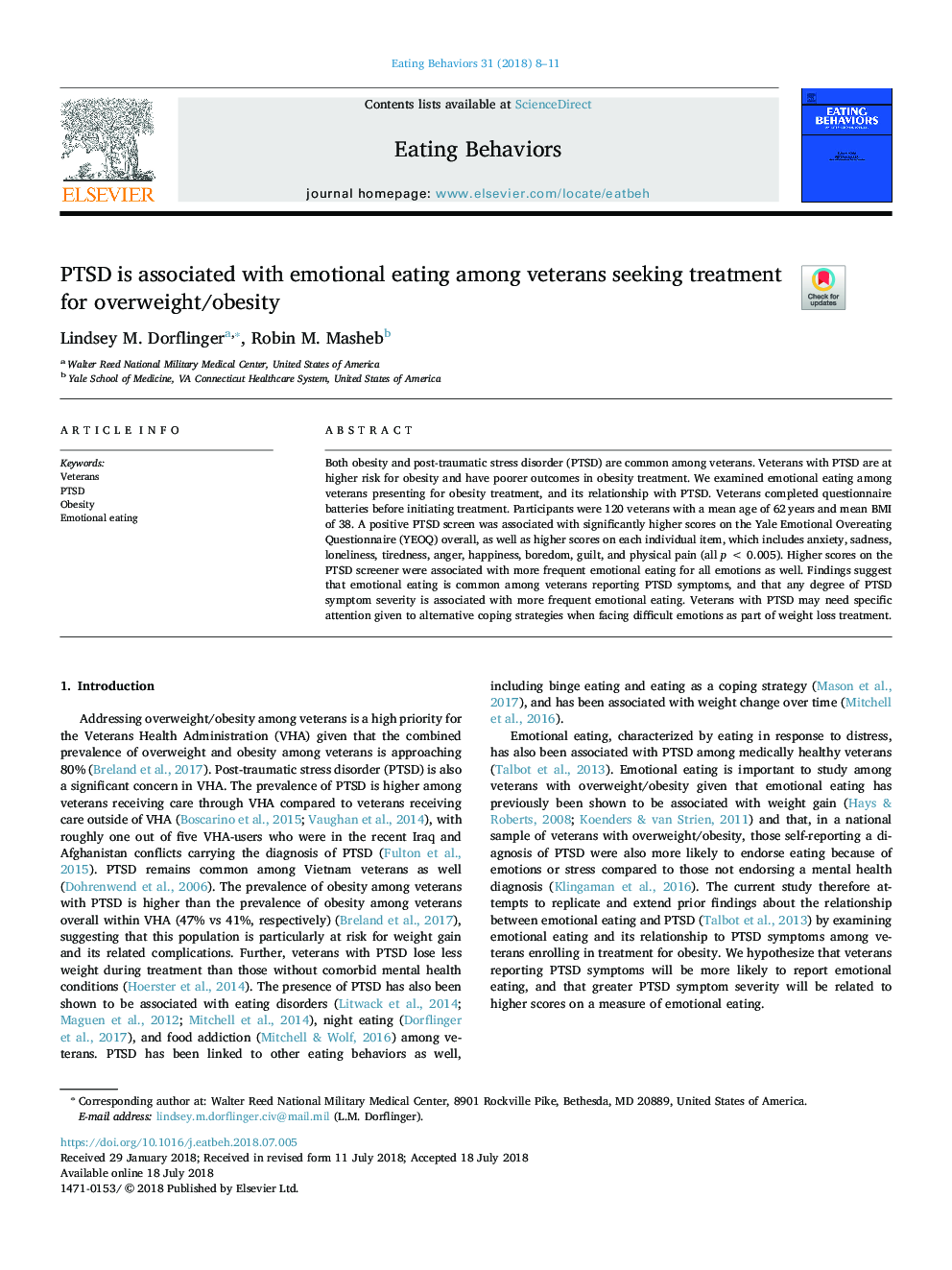| Article ID | Journal | Published Year | Pages | File Type |
|---|---|---|---|---|
| 7264750 | Eating Behaviors | 2018 | 4 Pages |
Abstract
Both obesity and post-traumatic stress disorder (PTSD) are common among veterans. Veterans with PTSD are at higher risk for obesity and have poorer outcomes in obesity treatment. We examined emotional eating among veterans presenting for obesity treatment, and its relationship with PTSD. Veterans completed questionnaire batteries before initiating treatment. Participants were 120 veterans with a mean age of 62â¯years and mean BMI of 38. A positive PTSD screen was associated with significantly higher scores on the Yale Emotional Overeating Questionnaire (YEOQ) overall, as well as higher scores on each individual item, which includes anxiety, sadness, loneliness, tiredness, anger, happiness, boredom, guilt, and physical pain (all pâ¯<â¯0.005). Higher scores on the PTSD screener were associated with more frequent emotional eating for all emotions as well. Findings suggest that emotional eating is common among veterans reporting PTSD symptoms, and that any degree of PTSD symptom severity is associated with more frequent emotional eating. Veterans with PTSD may need specific attention given to alternative coping strategies when facing difficult emotions as part of weight loss treatment.
Keywords
Related Topics
Life Sciences
Neuroscience
Behavioral Neuroscience
Authors
Lindsey M. Dorflinger, Robin M. Masheb,
